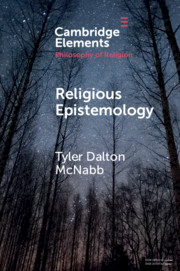If you believe in the existence of an infinitely good, all-knowing, and all-powerful deity (‘God’), how do you explain the reality of evil – including the inexpressible suffering and death of innocents? Wouldn't God be forced to vanquish such suffering due to God's very nature? Alvin Plantinga has argued, convincingly, that if the possibility of ultimate goodness somehow necessarily required that evil be allowed to exist, God, being omnibenevolent, would have to allow it. But as John Hick has noted, the mere logical possibility of such a situation might not be enough to console the doubting theist. We need a positive reason to believe that evil as we know it is compatible with God's existence. So, Hick offers a ‘soul-making’ theodicy – or vindication – of God, suggesting that the human soul cannot fully progress to spiritual maturity (a kind of ultimate good on his account) without grappling with evil. In this short piece I argue that, if we accept Hick's premises about souls and soul-making, we can indeed make sense of evil to some extent. But, I suggest, his account cannot justify the type or amount of evil we see in the world, so his theodicy does not succeed


